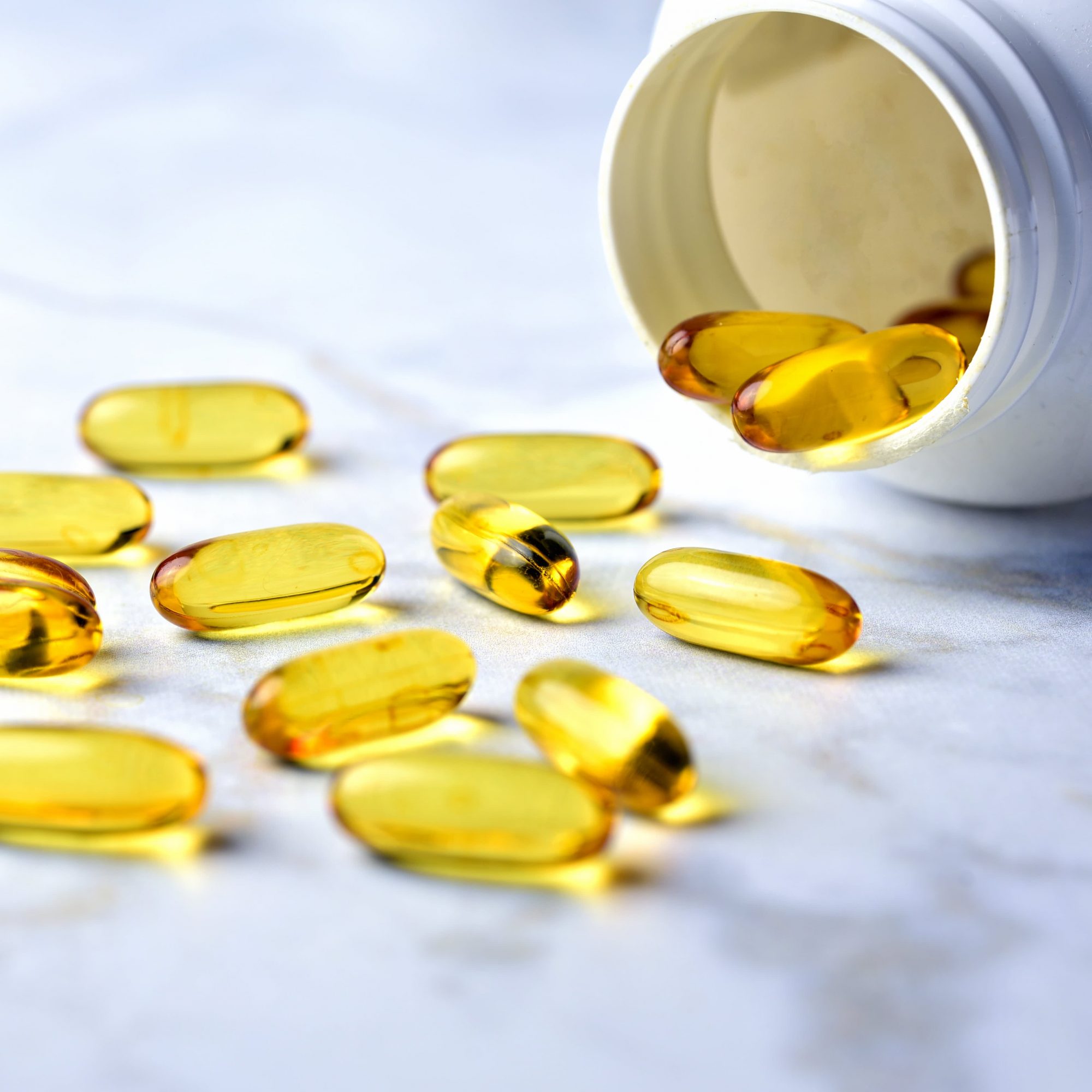
- POPSUGAR Australia
- Fitness
- Vitamin D Now Comes in a Spray, but Are These Supplements More Effective Than Pills?
Vitamin D Now Comes in a Spray, but Are These Supplements More Effective Than Pills?

Considering that staying at home has become a national pastime, it’s no surprise that one in two people aren’t getting enough vitamin D, otherwise known as the sunshine vitamin. Fortunately, vitamin D deficiency can easily be reversed. The body naturally produces vitamin D after exposure to the sun, and the nutrient is also found in many foods – and if you’re not getting enough from those sources, there are tons (and I mean tons) of over-the-counter supplements that can help.
But with such a wide variety of options, from capsules to newer sprays, how can you tell which type of vitamin D is the most effective? POPSUGAR spoke with Tod Cooperman, MD, an expert in consumer healthcare, to break it down.
Is It True That Vitamin D Sprays Are Better Than Pills?
While you may be accustomed to taking vitamin D in capsule form, Dr. Cooperman highly recommends vitamin D sprays, which are applied under the tongue. “First of all, they’re convenient. You can adjust the dose if you’re sharing it with your family,” Dr. Cooperman told POPSUGAR. Secondly, and even more importantly, the liquid form of vitamin D contains triglycerides, or lipids, “and vitamin D is better absorbed when taken with fats and oils.”
These lipids, which are derived from glycerol and fatty acids, “basically stimulate the secretion of bile into your small intestine,” Dr. Cooperman explained. “That bile breaks up fats and helps you absorb fat-soluble vitamins much better.”
He added that, while absorption is important for all dietary supplements, it’s especially important for ones with active ingredients like vitamin D. Absorption starts as soon as you ingest the vitamin, and finishes at the lower intestine. The process can be facilitated by taking the liquid form of the vitamin, because the oral cavity, particularly the buccal and sublingual membranes in your mouth, is very receptive to active ingredients. Absorbency in the gut, on the other hand, depends on the levels of stomach acid that you produce, which varies depending on your diet, age, and health. For example, people with conditions like celiac, Crohn’s disease, and colitis already struggle with absorption.
“Some people who are taking drugs that lower the acid in their stomach can also have trouble absorbing the vitamin,” Dr. Cooperman said – so, if this is the case for you, he recommends forgoing vitamin D pills in favor of a liquid or spray.
Is There Any Reason You Should Avoid Vitamin D Sprays?
Because vitamin D sprays are so convenient, they’re also easy to overuse, and unfortunately, that’s just as dangerous as having a vitamin D deficiency. Just because the vitamin D comes out as a light mist doesn’t mean you can use it casually – the amount actually matters. “Right in the middle is where you want to be, and that sweet spot is around 25 to 35 nanograms – that’s the level you should see on your blood test – or 600 IU a day,” Dr. Cooperman said.
It might be tempting to get the spray with the highest IU, but according to Dr. Cooperman, that’s not how vitamin D works. “Companies will sell you any amount you want to take – 1,000, 2,000, 5,000, even 10,000 IU,” he said. “I would stay away from taking very high levels of vitamin D. The upper tolerable intake of vitamin D is 4,000 IU, but really, if you’re taking up to 1,000 IU a day, that’s more than enough.” That said, you should consult your doctor, who can measure your vitamin D levels and determine how much more you need, if you need a supplement at all.
Finally, if you’re concerned about overuse with a spray, you can still take vitamin D in pill form. Just be sure to take it with food. “You get more vitamin D by taking it with a meal that has fats and oils than if you were just to take it with a glass of water,” Dr. Cooperman explained. The spray form of vitamin D, a recent innovation, simply makes it easier to accommodate for this – but that doesn’t mean that capsules are ineffective.


